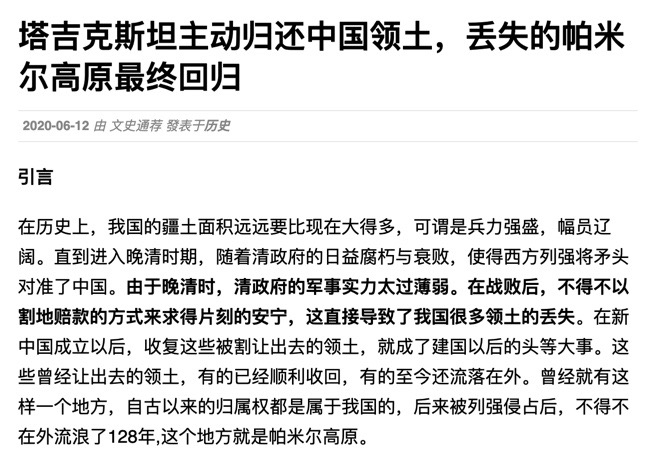Some thoughts on recent stoushes, and my own position, which evidently confuses people.
I’m sure the @ASPI_ICPC report is mostly accurate. It’s an impressive piece of work. But the empirical debate is substituting for a political debate, and no amount of data will shift that.
I’m sure the @ASPI_ICPC report is mostly accurate. It’s an impressive piece of work. But the empirical debate is substituting for a political debate, and no amount of data will shift that.
Camp skepticism or denialism, in its various forms, is really not about empirical questions. It reflects skepticism towards the actors and organisations making the running on China issues in the West. We're better off just facing up to that and talking about the politics.
The vitriol on the weekend is a sign of the centre collapsing on this issue, and the pressure is pushing some (thankfully not all) towards simple anti- and pro-China camps. These are both conservative positions in their own way. I want to restate what I see as the alternative.
There are two basic orientations towards XJ advocacy in the West. One is to place the issue alongside others as reasons to get tough on China. The other is to approach it as part of the War on Terror and global Islamophobia. I don't see a lot of space left to straddle the two.
The latter means addressing our own responsibility for the global situation, adopting a stance critical of Western militarism and anti-Muslim policing, and inviting Chinese people to side with us on that basis. It’s an offer to collaborate to make the world a better place.
I don’t see this as in any way going soft on China’s policies in XJ. It will make it much easier to find Chinese allies, get global opinion onside – particularly in Muslim countries, and restore the functionality of things like international human rights institutions.
And it doesn’t mean you can’t analyse the situation in XJ in light of the specificities of Chinese history and politics. Of course you can. It’s a question of how we, as outsiders, can find a productive entry point to the issue politically.
To be credible, I’m afraid this also requires drawing some lines, and keeping one's distance from groups like ASPI. People are too familiar with Western cooption of human rights for interventionist policies to feel comfortable about an alliance that includes security thinktanks.
ASPI’s Peter Jennings led us into war in Iraq, we shouldn’t trust him not to re: China. Propaganda needn’t be untrue – it’s better if it’s true. In WWI, Britain was correct to say that Germany was more authoritarian than it was. That didn’t make WWI a war for freedom though.
Thread getting a bit long – sorry. Basically my point is this: profound outrage towards the camps and profound skepticism of Western intentions towards China are both entirely valid and justified. More importantly, they needn’t be seen as contradictory positions.
Right now, the polarization is actually undermining both causes. Just as ASPI’s association with the defense sector saps its credibility and gives rise to camp skepticism, so too critics of Western foreign policy undermine their position by veering into apologetics re: China.
If Westerners who advocate for the Uyghurs, and those who want to fend off a new Cold (or hot) war, could synthesise their positions and combine their energies (the basis for which I've tried to sketch out above), I think we’d find ourselves in a better place on both issues.
• • •
Missing some Tweet in this thread? You can try to
force a refresh











